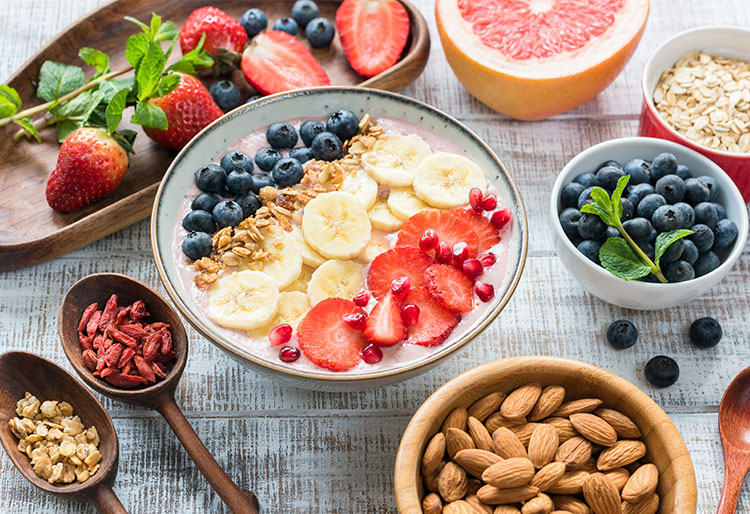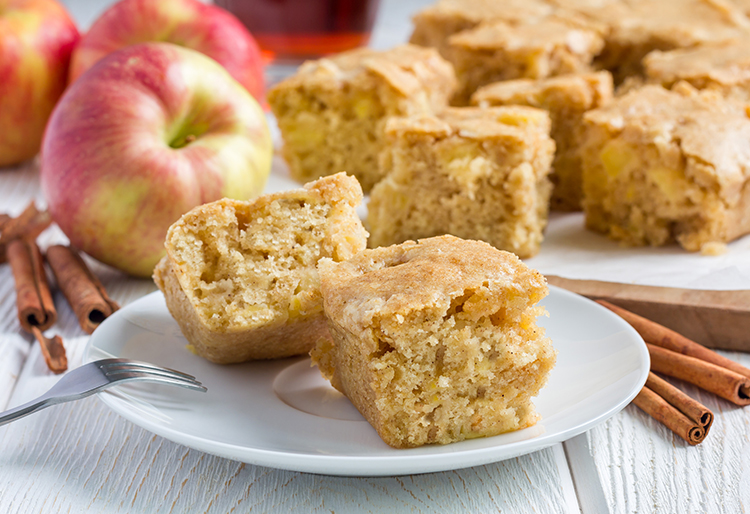Healthy breakfasts: homemade and healthy
Breakfast should give us the energy we need for the rest of the day. Fruit and wholemeal bread are some of the most recommended options.
on today's menu
Share

It is often said that breakfast is the most important meal of the day, because it helps us cope with our daily chores. That's why we need to make sure it's healthy and, if possible, homemade.
According to the World Health Organisation (WHO), a balanced breakfast should provide around 400 calories. The organisation also states that not having breakfast can affect performance during the day.
How to make a healthy breakfast?
As the first meal of the day, breakfast has a double function: on the one hand, it helps to break our overnight fast and, on the other, it provides the energy and nutrients needed to face a morning full of activities. The number of hours of fasting usually varies between 7-10 hours, depending on the age and activity of each person, but it is enough to create a calorie deficit in the morning which needs to be replenished, to avoid our body having to "take hold" of our sugar reserves. These reserves can be exhausted, particularly if there is intense activity during the morning, and sometimes our reserves are depleted, which makes you eat the first thing that comes to hand or, much of the time, a lunch containing excessive calories and fat.
According to the latest studies, there is a tendency to reduce the time spent on breakfast and to make breakfasts increasingly lighter. This tendency is observed in both children and adults, putting this down to lack of time, not being hungry or having a very light breakfast in order to lose weight.
There is a tendency to reduce the time spent on breakfast and to make breakfasts increasingly lighter

The breakfasts in which biscuits, pastries and toasts are eaten to excess entail an excess of carbohydrates, few proteins and no fibre. This "overconsumption" of carbohydrates, mainly simple (juices, sugar, honey and jams) and refined flour products (pastries and white bread) causes an excessive secretion of insulin, which produces a rebound effect of excessive hunger, similar to leaving home without breakfast.
It is necessary to be aware of the importance of eating breakfast and the foods that should be part of it. The foods that should be present in a breakfast are those that contribute:
• Energy: It should provide between 20-30% of your total daily calories. Between 400 and 600 calories, for an average diet of 2000 calories/day.
• Carbohydrates: If they are wholemeal they are a good source from fibre that helps fight constipation.
• Proteins: Moderate amounts, and preferably low-fat.
• Fat: Moderate amounts, and avoid saturated fats.
• Vitamins and minerals: Include foods rich in calcium, fibre and antioxidants. Among the minerals, calcium has a special importance, since it tends to be low during the rest of the day (lunch and dinner).
Dried fruits can also be included in breakfasts.
Homemade recipes for healthy breakfasts
Oatmeal milkshake, figs, soya and lemon drink
Bread with ham and fresh tomato
Cereal bread with tofu and tomato slices







